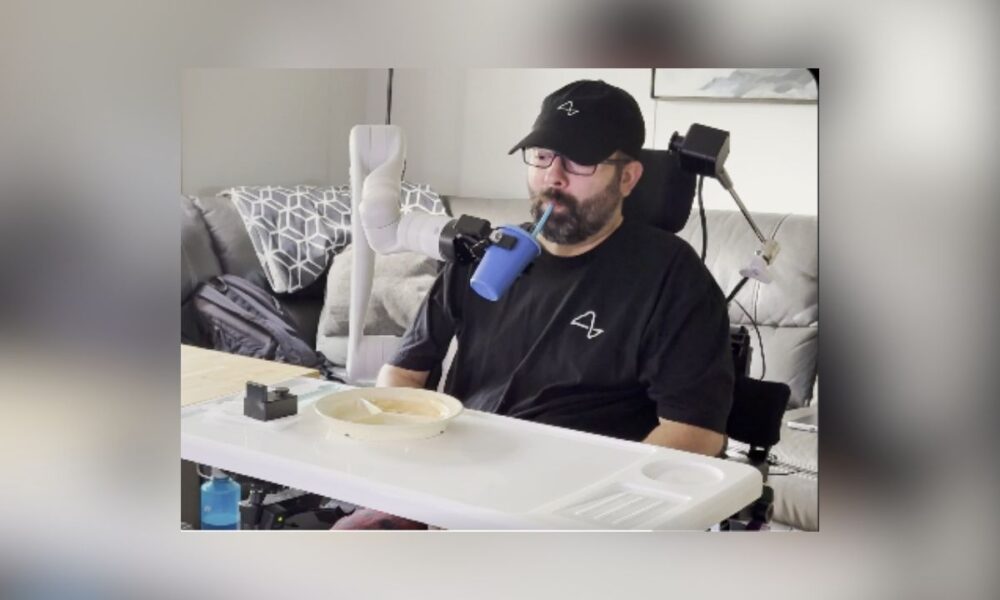Neuralink has reached another milestone in brain-computer interface (BCI) technology, with ALS patient Nick Wray successfully using his thoughts to control a robotic arm.
The demonstration, part of the FDA-approved “CONVOY” study, shows progress for Elon Musk’s company, which aims to restore independence to people with severe mobility limitations.
Wray, the eighth person to receive a Neuralink implant, shared his experience on X, describing it as “one of the most incredible experiences of my life so far.”
Over the course of three eight-hour workdays, he used the device to operate the robotic arm, performing daily tasks such as picking up a cup, putting on a hat, microwaving food, and opening a refrigerator. In one clip, the arm lifted a cup to his mouth for a drink as Wray said, “I’ll be able to talk with my hands again.”
The implant itself is a coin-sized chip inserted into the brain.
The chip converts brain signals into Bluetooth-based commands, letting users control external devices by their thoughts alone. During the demo, Wray set new records on dexterity tests often used for stroke patients, moving 39 cylinders across a table in five minutes and flipping five puzzle-like pegs in another. He even allegedly pulled off what he described as a “ridiculous trick shot,” soon to be shown in another upcoming video.
He also tried driving his wheelchair using the BCI.
“I did really well!” he wrote, thanking Neuralink and the Buoniconti Fund for their support. “This project is incredible, and I’m so grateful to be a part of it.”
The Dallas Express previously covered Neuralink’s earlier trials, including the first-ever patient, Noland Arbaugh, who used his implant to control a computer cursor and play video games like Mario Kart.
However, after some of the implant chip’s “threads” detached from Arbaugh’s brain — causing his newfound skills to fade away — Neuralink upgraded the design, doubling the number of brain connections in each implant.
Wray’s progress comes as debate continues over Neuralink’s safety and transparency.
Co-founder Dr. Benjamin Rapoport left the company in 2019, citing concerns about the invasive surgery required to implant the device, according to Futurism.com. He now leads a separate company, Precision Neuroscience, focused on surface-level electrodes that don’t require removing part of the skull.
Despite the criticism from past co-founders, Neuralink has implanted 12 human patients since trials first began.
Now, Wray says that he is focused on exploring new ways to use the brain-computer interface, including a project he is working on related to cryptocurrency.
“Life with my BCI has been and continues to be so surreal and so rewarding,” he added.
While full-scale robotic control remains years away, Wray’s success offers a glimpse into a future where thought-driven technology could transform daily life for people with ALS and other debilitating conditions.
Stay tuned as The Dallas Express keeps readers updated on Neuralink’s progress.


